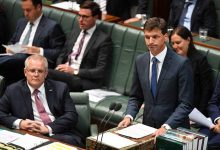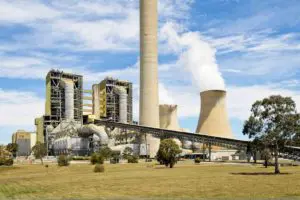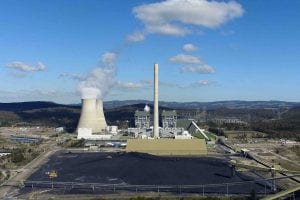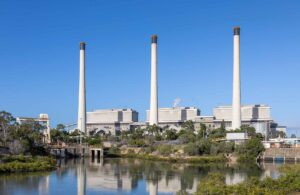The Coalition government has been warned – yet again – that its proposed “big stick” intervention into Australia’s energy markets is unworkable and will kill investment, even as energy minister Angus Taylor tries to force through before the election what might be the last gasp for coal investment in Australia.
Two major international energy groups – New Zealand’s Meridian Energy and US energy giant GE – have joined what is a near unanimous condemnation of the Coalition’s threat to force divestment in the energy market, and confusing new rules about contracting.
The proposal – ostensibly designed to stop the gaming of wholesale energy markets, but seen more as a means to intimidate the likes of AGL into keeping open ageing coal plants like Liddell – is being universally condemned, and will likely create a similar drought in energy investments caused by the former Abbott government’s review of climate policy and the renewable energy target.
“This is totally unworkable,” said Meridian, the biggest privately owned utility in New Zealand and the owner of Powershop in Australia and a number of large wind farms.
“The only prudent response that an investor can take to this increased uncertainty is to increase the required return from any such investment with this leading to higher prices and or delayed investment, placing reliability at risk.
“Already the mere threat of this legislation has made us question whether we should hold back on, or require greater returns from, investments which we are currently contemplating to increase reliability and security of supply.”
Meridian’s thoughts were echoed by GE, the global energy giant which is now switching its focus to renewables, storage and smart grid technology, which said the federal government intervention could “stifle the uptake” of technology and innovation.
Bidding and pricing in the wholesale markets – both in the recent heatwaves and for much of the last two years – does warrant scrutiny. But most market analysts say the answer lies in more competition and tougher supervision by the regulators.
The government’s intervention is being seen as “ad hoc”, rushed and ill-conceived. Mostly it is being damned because of the ideological under-currents that are looking to protect existing coal plant investment and encourage new ones, against sensible economic, environmental and engineering outcomes.
State governments are outraged by the lack of consultation and the threatened undermining of their own authority. Renewable energy, gas and coal-fired generators are equally appalled the proposals. (You can find the submissions here).
While the “big stick” proposals will be the subject of a Senate committee hearing in Melbourne on Wednesday, Taylor is pushing ahead with the government’s proposed tender for “24/7” reliable power in what appears to be a mad rush to lock in contracts before the expected “caretaker” period begins in mid April, ahead of the anticipated mid-May poll.
Taylor last week said that 66 proposals had been received. This included 10 coal proposals, although the majority was for some form of gas generation. Sanjeev Gupta has also put forward a solar plus storage proposal based around his steelworks in Whyalla.
Taylor, however, thinks there is already too much wind and solar in the system, and is widely reported to be favouring coal, which will require either a government indemnity against carbon pricing (up to $7 billion) or, even worse, a requirement that the government act as a “back-stop” and make good on any failed coal investment.
Taylor and his team, led by former Deutsche Bank analyst John Hirjee, have dealt enough flexibility and vagueness into the tender guidelines that they can frame the next stage of the process, a more formal request for proposals, pretty much as they want.
A spokesperson for Taylor told RenewEconomy the government will refine the design of the program in light of the information it has received through the informal registration of interest (ROI) process.
He added: “But as the Minister said last Friday, ‘We’re going to go through them as quickly as we can. There’s absolute urgency here’.”
But the urgency appears driven only by electoral needs. All energy analysts, apart from those beholden to the fossil fuel industry, think the timeline is crazy, given the detailed nature of such investments, the hurdles needed to get approvals and contracts, and the uncertainty around future government policy.







